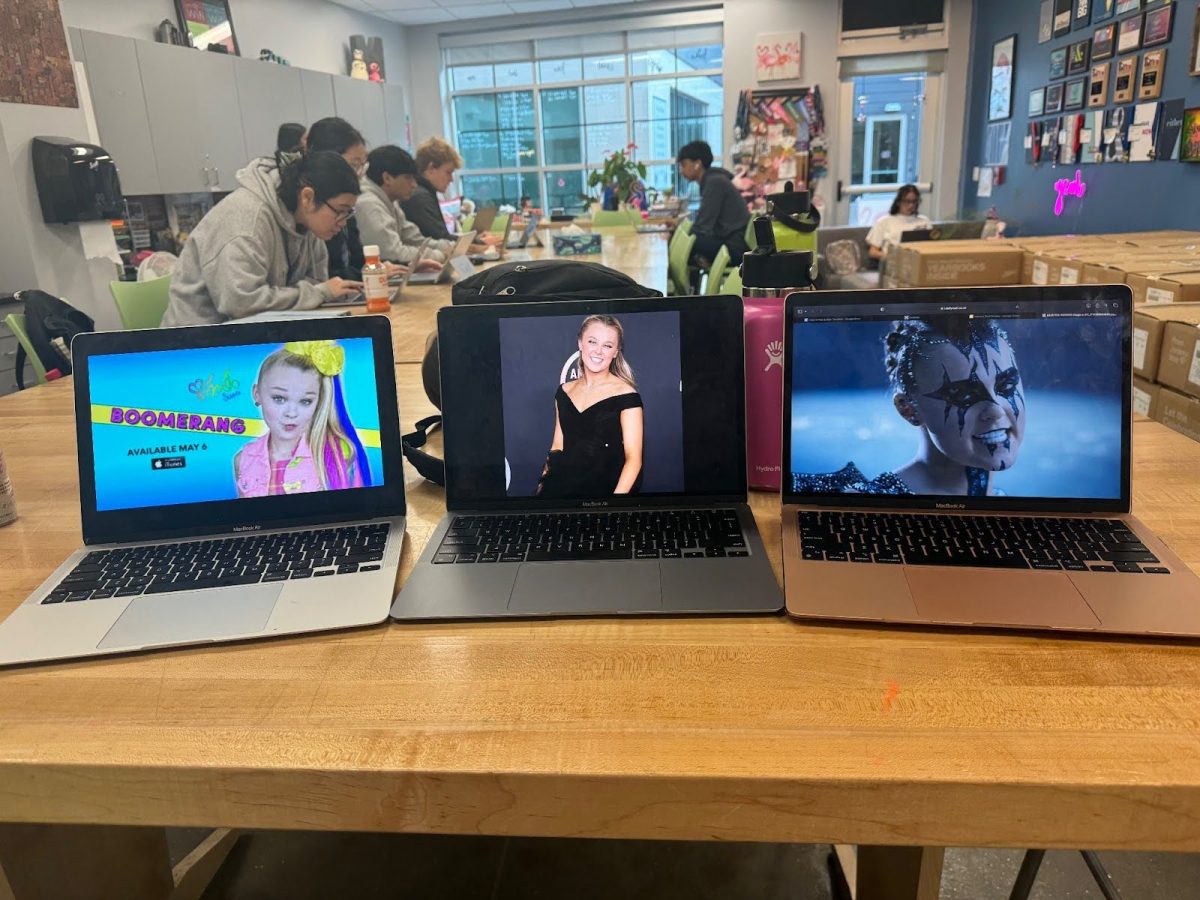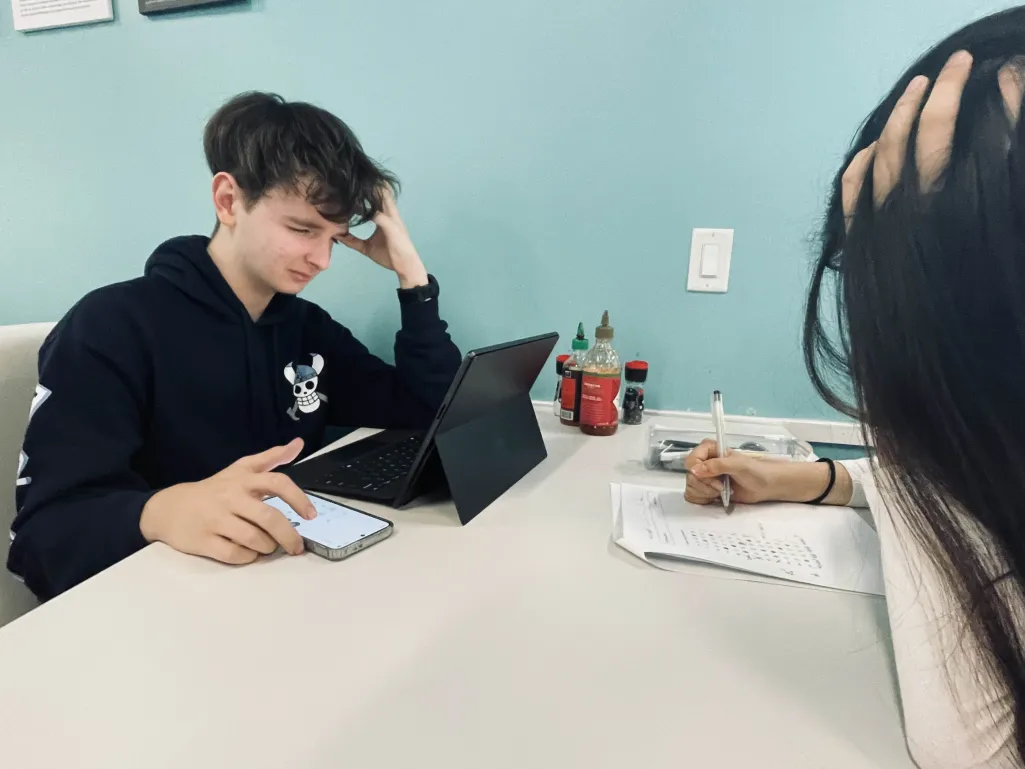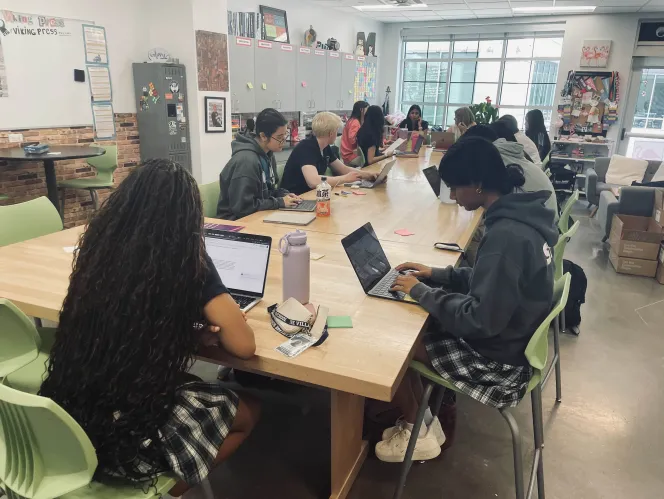This article mentions explicit content
Child stardom is an intricate phenomenon. Reflecting on contemporary former stars who grew up in the limelight, it is hard to avoid the narrative of how some have seemingly ruined their lives, whether through the use of illicit substances or the public exploration of their sexuality. In recent decades stars like Miley Cyrus, Demi Lovato, Justin Bieber and Britney Spears have had their private lives scrutinized and criticized due to their pasts as young celebrities. This raises the question: Are all child stars doomed to go down the same path? To answer this, an examination of JoJo Siwa’s rise to stardom and, consequently, downfall will be made.
Boomerang
On May 6, 2016, JoJo Siwa released Boomerang, a song that would change the lives of many prepubescents on the internet. Very early on, the song’s meme-ability left a precedent for Siwa’s career. By this point if people did not know Siwa from her role on the reality show Dance Moms, then they knew Boomerang by heart. Regardless of the reasoning behind their cultural knowledge of JoJo Siwa, people understood she was here to stay. In 2017 after signing a contract with entertainment machine Nickelodeon, Siwa began to take off. Between bow sales (she told Forbes that over 80 million bows were sold under her image in 2020) and any kind of merchandise you can imagine (toothbrushes, dolls, coloring books, clothing, etc) it seemed impossible to miss Siwa’s face when going out in the following years – this, however, did not last long. Soon, her bubbly, glittery persona became perceived as immature and concerning.
The Downfall
Exponentially, as Siwa got older, she became the subject of ridicule. Concern skyrocketed when, at seventeen, the performer continued to wear her colorfully extravagant bows and bodysuits that had become her brand. Regardless of the hate comments, Siwa refused to conform to what the public wanted from her, and instead decided to please her core audience, which consisted of mostly little girls (Siwa went as far as collaborating with five year old, North West – Kim Kardashian and Kanye West’s daughter – in a Youtube video while she herself was sixteen). The hate, however, did not stop. In a sense, the continuous hate kept Siwa’s presence relevant and she knew it. She used the ongoing attention for her benefit, portraying herself as a marketing machine. Siwa embraced her status as a magnet for criticism to expand her brand’s reach.
The Forgotten Years:
Throughout the pandemic Siwa stopped being a part of teenagers’ daily conversations. At the end of 2019, JoJo Siwa’s internet presence seemed to go dormant. Regardless of this lost interest in her, Siwa was doing better than ever. Merchandise sales never stopped and multiple opportunities arose (JoJo Siwa’s business lifted +10% sales at Walmart in the fall of 2020 according to Shorty Awards).The truth is Siwa was still making content and planning to tour across multiple U.S. cities once quarantine was lifted, the only major difference from the years prior was that the people paying attention to her were not haters, but rather little kids who admired her and aspired to be like her – which made it even the more surprising when Siwa decided to come out in early 2021.
The Comeback
Unsurprisingly, JoJo Siwa received new forms of hate from the parents of her fans when she first came out as queer. Her vulnerability did not come without its sacrifices, JoJo explained she had lost a large portion of her fanbase but stated that “[They’re] not meant to like me” on the debut episode of the podcast JoJo Siwa Now. This hate was short lived though, as queer and lesbian communities across social media platforms embraced and defended Siwa against all hate. Instantly, the internet star became the face of the lesbian community on TikTok, and the general public began to like her again – edits of her were a common appearance through many For You Pages. Her ongoing appearances on national television and major social media outlets raised awareness on the lack of lesbian representation on TV. Despite saying that “Personally, I have never, ever, ever been this happy before and it feels really awesome” on an Instagram Live. But unfortunately, JoJo Siwa’s coming out was not necessarily as carefree and liberating as she had expected. Soon, Siwa became involved in TikTok Drama, as her new dating life was publicly talked about. Her former relationship with TikTok content creator Avery Cyrus became the talk of the platform, especially their messy breakup. After months of remaining mostly silent on her past relationships, Siwa decided to speak up by releasing new music. It was speculated that her newest single Karma would implicitly address her breakup with Cyrus, and the people were here for it.
She Should’ve Known Better…
Today, Siwa’s comments are full of people making fun of Karma. The backlash from the song and music video mainly stemmed from two major points: Firstly, people were underwhelmed by the song itself. Early on Siwa teased the single as a major step in her career as she would completely change gears from a sparkly child-star to a mature performer with a messy dating life. Instead people received an uncomfortable-to-watch music video full of sand, water and grinding paired with PG-13, a mildly irritating song about the most trite theme in pop music: cheating. Following the disappointing release of Karma, Siwa made guest appearances at various podcasts and radio shows, most notably though she was interviewed by Billboard News – this led to the second reason Karma received such backlash. In said interview Siwa confessed she wanted to create a new genre of music called “Gay-Pop.” Instantly people became infuriated – not only did they believe Siwa was giving herself too much credit, but they also felt the statement discredited musical legends like Freddie Mercury, Elton John and Prince as well as contemporary queer musicians such as Teagan and Sara, MUNA and Hayley Kiyoko who had been consistently making queer anthems for decades. Currently, although Siwa is still dealing with the repercussions of Karma, she seems to be unapologetically enjoying her newfound freedom.
The Consequences of Being a Bad Girl
JoJo Siwa is just one example of the way the media and the public treat child stars. Most children who experience stardom at a young age are targeted for growing up too slow, but once they begin to rebel and experiment with their self image outside of entertainment contracts, they are met with a downpour of hate and disappointed stares. Ultimately, in examining JoJo Siwa’s trajectory, it becomes evident that although the path of child stars seems to follow a similar general direction, the narrative of child stardom is one defined by nuance and individual experience, and it cannot be generalized to any extent.








